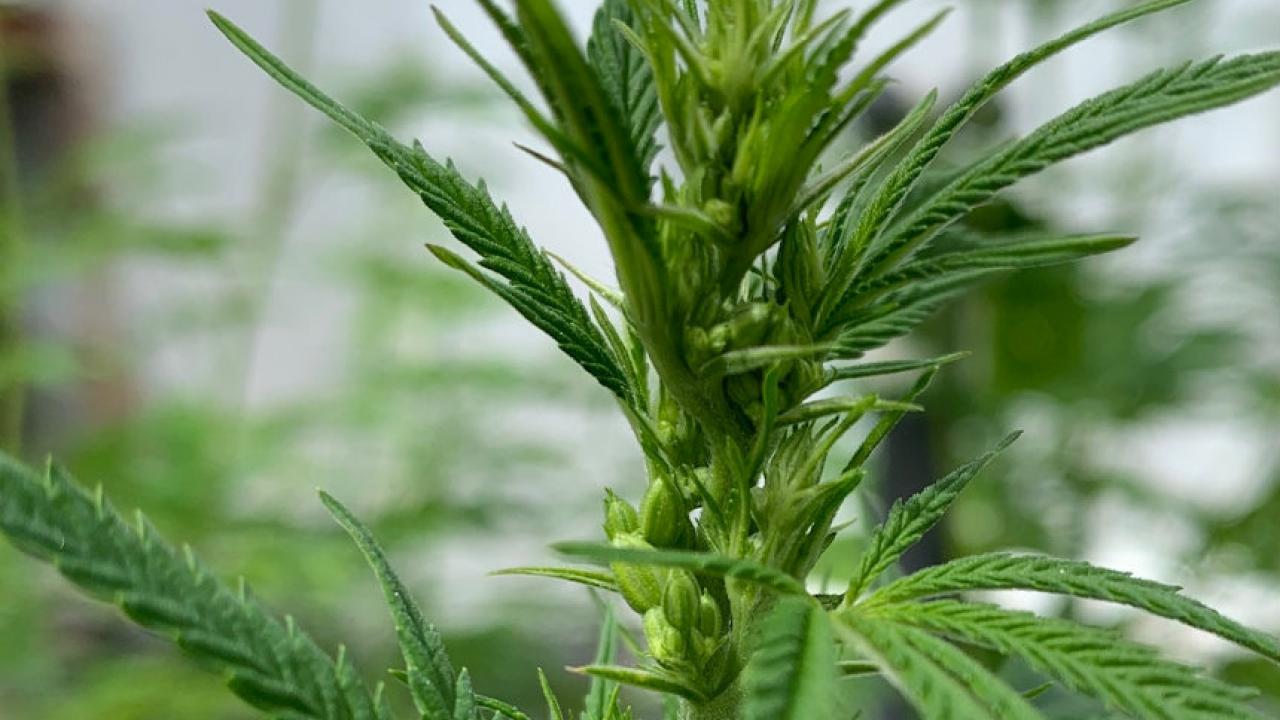Researchers at the University of California, Davis, have partnered with a federally compliant pharmaceutical company to analyze the chemical and biological profiles of cannabis for the benefit of law enforcement, health care providers and scientific professionals.
The agreement with Biopharmaceutical Research Company, which is registered with the U.S. Drug Enforcement Administration, is among the first of its kind. UC Davis and BRC researchers will analyze legally acquired cannabis materials in BRC’s labs to understand the chemical composition of tetrahydrocannabinol or THC, cannabidiol or CBD, and other cannabinoids. There will be no cannabis on the UC Davis campus or any UC Davis-owned or leased property as part of this research.
“While cannabis is already available for medicinal and recreational use in a majority of states, cannabis research has long struggled to keep pace with the law,” said Gail Taylor, professor and chair of the Department of Plant Sciences at UC Davis. “We expect this partnership to bring more scientific understanding of the plant and its products so that regulators can more effectively manage potential risks and benefits.” More details of the project team can be found here.
UC Davis and BRC researchers will evaluate existing chemistry methods to analyze cannabis and identify the most precise, accurate and reproducible methods for standardization, using diverse Cannabis sativa. In addition, researchers will investigate the interactions between cannabis and microbes, pests and pathogens to determine crop management strategies that protect the environment.
Researchers believe that with a better scientific understanding of cannabis, government authorities will be able to more effectively regulate the substance, and health care providers will be able to uncover potential new treatments and improve its prescribing practices.
“BRC was founded on the mission of examining how cannabis can effectively be used to help patients across America, particularly veterans struggling with depression, post-traumatic stress, chronic pain and other wartime wounds,” said George Hodgin, founder and CEO of BRC. “The BRC team is eager to support UC Davis in this research endeavor, and to help lawmakers and regulators better understand the science of cannabis, so stakeholders can more effectively make policy and health decisions.”
BRC's application for cultivation is still pending, so all materials will be legally acquired through DEA-approved channels. BRC plans to begin its own cultivation operations for research purposes when the company receives DEA authorization.
UC Davis to launch Cannabis and Hemp Research Center
Research related to cannabis is not new to UC Davis. As a leader in agriculture, plant science and veterinary medicine, with a top-ranked medical center, UC Davis has an extensive research infrastructure in place that is providing insight related to cannabis production, applications for use and social implications.
In order to leverage these strengths and promote transdisciplinary collaborations, UC Davis is establishing a Cannabis and Hemp Research Center.
“The center will stimulate new research and educational exchange by convening conferences and seminars, providing seed funding and engaging with policymakers,” said Cindy Kiel, executive associate vice chancellor for research administration for the Office of Research. “It will also provide a centralized resource to ensure compliance with current laws and policies.”
UC Davis plans to officially launch the center this year and has initiated the process to identify two faculty co-directors.
Media Resources
Amy Quinton, UC Davis News and Media Relations, 530-752-9843, amquinton@ucdavis.edu
Gail Taylor, UC Davis Department of Plant Sciences, 530-752-9165, gtaylor@ucdavis.edu
Jacqueline Clark, Squared Communications, jacqueline@sqcomms.com
